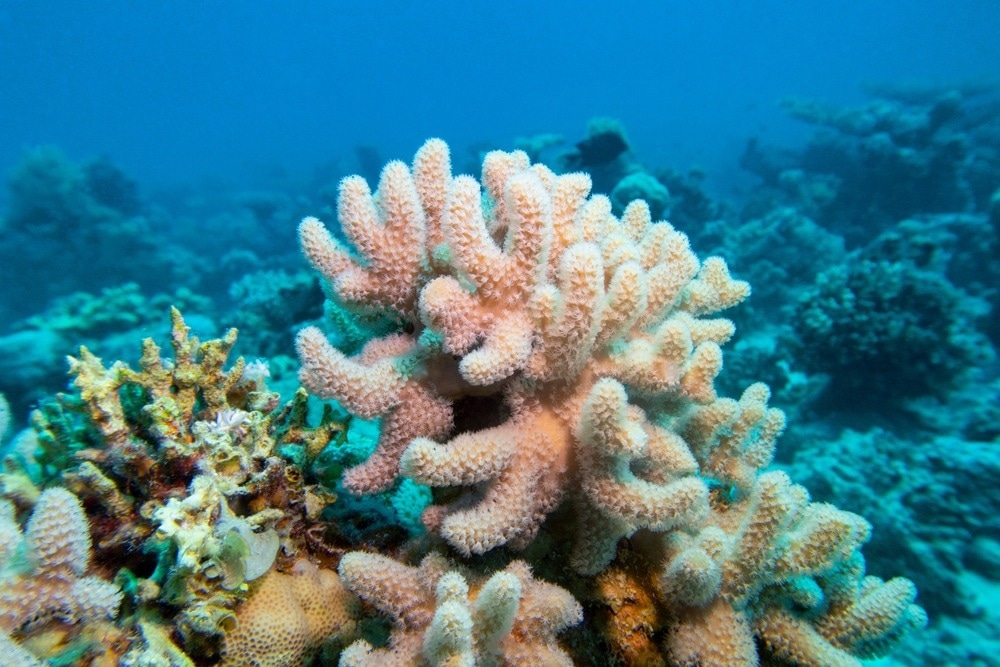For the first time, scientists have identified a single-celled microbe that can protect corals from ocean warming-related events like bleaching.
 Image Credit: Jolanta Wojcicka/Shutterstock.com
Image Credit: Jolanta Wojcicka/Shutterstock.com
Researchers at the University of Miami’s Rosenstiel School of Marine, Atmospheric, and Earth Science and the Institute of Evolutionary Biology (IBE: CSIC-UPF) in Barcelona led the new study, which provides fresh insights into the potential role microbes may play in assisting corals in withstanding projections of global warming by the end of the century.
The researchers discovered that scientists can determine whether a coral will withstand heat stress by looking at the abundance of specific protists within the coral microbiome, which is made up of a variety of microorganisms that live within corals.
With ocean warming events becoming more frequent, these findings have significant ramifications for corals worldwide, particularly those lacking zooxanthellae, the symbiotic algae that causes corals to bleach in warm water.
This is the first time that a non-algae microbe has been shown to influence the ability of corals to survive a heat-stress event. As corals face more and more heat-stress events due to climate change, a better understanding of all the microbes that may influence survivability can inform conservation practitioners as to which corals they should prioritize for intervention.”
Javier del Campo, Senior Author and Adjunct Assistant Professor, Rosenstiel School of Marine, Atmospheric and Earth Science, University of Miami
Campo is also a Principal Investigator of the IBE, a joint center of the Spanish National Research Council (CSIC) and University Pompeu Fabra (UPF).
The multinational research team gathered coral samples from all around the Mediterranean to perform heat-stress tests and microbiome analyses as part of the project. Before putting the bacteria and protists in the microbiome of one species of soft coral, the violescent sea-whip (Paramuricea clavata), to a natural heat-stress in the lab to look for signs of mortality, the team amplified and sequenced two types of rRNA.
Due to mass mortality events linked to global warming, Paramuricea clavata, an important architect of the Mediterranean temperate reefs, is currently in danger.
The scientist discovered that while Corallicolids, a group of protists closely related to the parasite that causes malaria in humans, are more common in corals that die from heat stress, Syndiniales, a group of parasitic single-celled protists, are more common in corals that survive heat stress.
The researchers found that although bacteria are better studied in most host organisms than protozoa or single-cell eukaryotes, protozoa may have a significant impact on the health of their coral host.
The microbiome is a vital component of coral host health and we should study all members of it from the bacteria to the protists.”
Javier del Campo, Senior Author and Adjunct Assistant Professor, Rosenstiel School of Marine, Atmospheric and Earth Science, University of Miami
The study was published in the journal Environmental Microbiology.
Source:
Journal reference:
Bonacolta, M. A., et al. (2023) Differential apicomplexan presence predicts thermal stress mortality in the Mediterranean coral Paramuricea clavata. Environmental Biology. doi.org/10.1111/1462-2920.16548